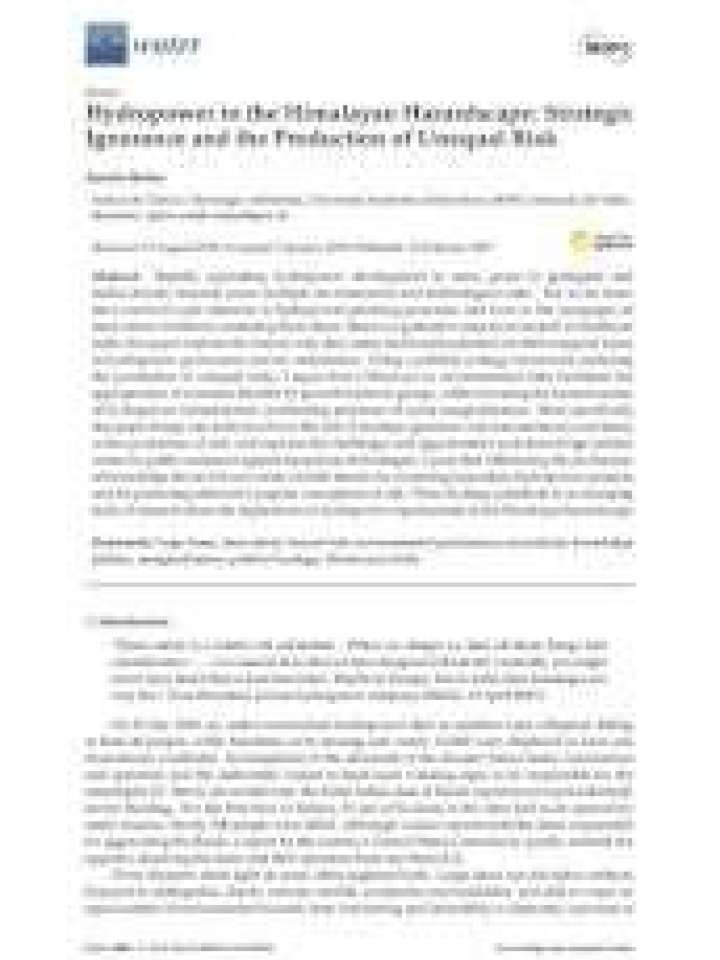Hydropower in the Himalayan hazardscape: strategic ignorance and the production of unequal risk
Rapidly expanding hydropower development in areas prone to geological and hydro-climatic hazards poses multiple environmental and technological risks. Yet, so far these have received scant attention in hydropower planning processes, and even in the campaigns of most citizen initiatives contesting these dams.
Based on qualitative empirical research in Northeast India, this paper explores the reasons why dam safety and hazard potential are often marginal topics in hydropower governance and its contestation. Using a political ecology framework analyzing the production of unequal risks, it argues that a blind-eye to environmental risks facilitates the appropriation of economic benefits by powerful interest groups, while increasing the hazardousness of hydropower infrastructure, accelerating processes of social marginalization. More specifically, this paper brings into analytical focus the role of strategic ignorance and manufactured uncertainty in the production of risk, and explores the challenges and opportunities such knowledge politics create for public resistance against hazardous technologies. It posits that influencing the production of knowledge about risk can create a fertile terrain for contesting hazardous hydropower projects, and for promoting alternative popular conceptions of risk. These findings contribute to an emerging body of research about the implications of hydropower expansionism in the Himalayan hazardscape.
Explore further
